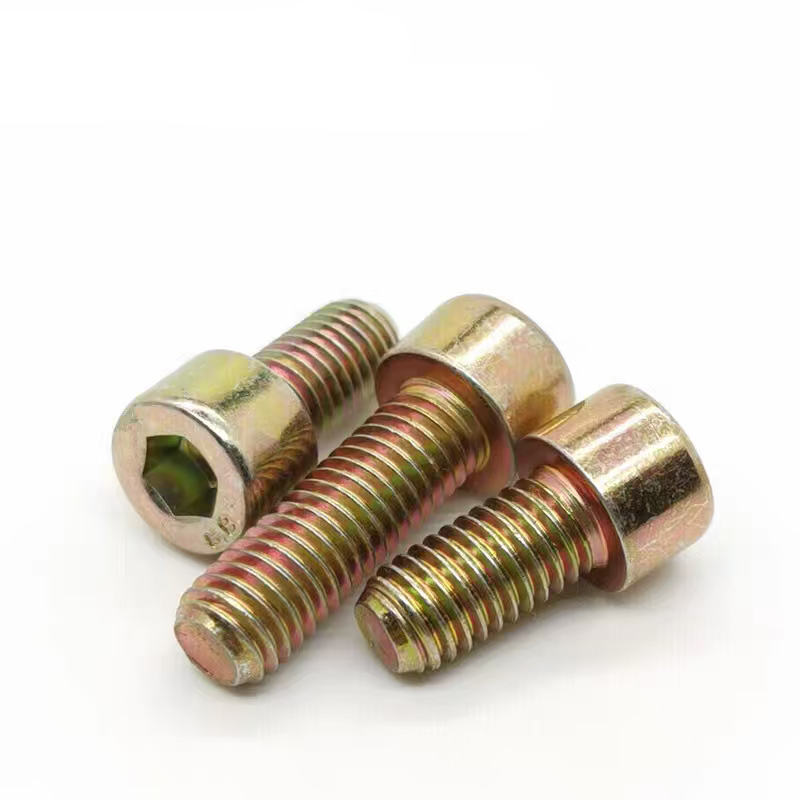- English
- Chinese
- French
- German
- Portuguese
- Spanish
- Russian
- Japanese
- Korean
- Arabic
- Irish
- Greek
- Turkish
- Italian
- Danish
- Romanian
- Indonesian
- Czech
- Afrikaans
- Swedish
- Polish
- Basque
- Catalan
- Esperanto
- Hindi
- Lao
- Albanian
- Amharic
- Armenian
- Azerbaijani
- Belarusian
- Bengali
- Bosnian
- Bulgarian
- Cebuano
- Chichewa
- Corsican
- Croatian
- Dutch
- Estonian
- Filipino
- Finnish
- Frisian
- Galician
- Georgian
- Gujarati
- Haitian
- Hausa
- Hawaiian
- Hebrew
- Hmong
- Hungarian
- Icelandic
- Igbo
- Javanese
- Kannada
- Kazakh
- Khmer
- Kurdish
- Kyrgyz
- Latin
- Latvian
- Lithuanian
- Luxembou..
- Macedonian
- Malagasy
- Malay
- Malayalam
- Maltese
- Maori
- Marathi
- Mongolian
- Burmese
- Nepali
- Norwegian
- Pashto
- Persian
- Punjabi
- Serbian
- Sesotho
- Slovak
- Slovenian
- Somali
- Samoan
- Scots Gaelic
- Shona
- Sindhi
- Sundanese
- Swahili
- Tajik
- Tamil
- Telugu
- Thai
- Ukrainian
- Urdu
- Uzbek
- Vietnamese
- Welsh
- Xhosa
- Yiddish
- Yoruba
- Zulu
- Kinyarwanda
- Tatar
- Oriya
- Turkmen
- Uyghur

ගෑස්කට් තිරසාරත්වය තුළ නව්යකරණය කරන්නේ කෙසේද?
2025-09-01
තිරසාරත්වයේ ක්ෂේත්රය තුළ, ගෑස්කට් තාක්ෂණයේ නවෝත්පාදනයන් විදුලි මෝටර් රථ හෝ සූර්ය පැනල වැනි සිරස්තල අල්ලා නොගත හැකිය. එහෙත්, මෙම කුඩා සංරචක විමෝචනය සහ අපද්රව්ය සැලකිය යුතු ලෙස අඩු කිරීමෙන් කාර්මික තිරසාරභාවය සඳහා වැදගත් කාර්යභාරයක් ඉටු කරයි. ඒවායේ බලපෑම සියුම් නමුත් ගැඹුරු වන අතර, කර්මාන්ත කාන්දුවීම් වැළැක්වීමට සහ සම්පත් සංරක්ෂණයට ප්රවේශ වන ආකාරය වෙනස් කරයි.
ද්රව්යමය තේරීම් නැවත සිතා බැලීම
සම්ප්රදායිකව ගෑස්කට් නිපදවා ඇත්තේ පරිසර හිතකාමී නොවන රබර් සහ ඇස්බැස්ටෝස් වැනි ද්රව්ය වලිනි. කාලයාගේ ඇවෑමෙන්, කර්මාන්තය දුෂ්කර මාර්ගයක් ඉගෙන ගෙන ඇත - පාරිසරික රෙගුලාසි සහ අපද්රව්ය කළමනාකරණ ගැටළු සමඟ කටයුතු කිරීම. දැන්, සමාගම් වඩාත් තිරසාර විකල්ප වෙත මාරු වෙමින් පවතී. PTFE සහ සිලිකොන් වැනි ද්රව්ය වඩාත් පරිසර හිතකාමී වන අතර කල් පැවැත්මක් ලබා දෙයි. මෙම ද්රව්ය ගෑස්කට් වල ආයු කාලය දීර්ඝ කරනවා පමණක් නොව වැඩිදියුණු කළ ප්රතිචක්රීකරණයට පොරොන්දු වේ.
මම මෙම උසස් ද්රව්ය භාවිතා කරමින් ශාකයකට ගිය විට, මාරුව පැහැදිලි විය. අපද්රව්ය ක්ෂණිකව අඩු කිරීම සහ බැහැර කිරීමේ පිරිවැය අඩු විය. වඩාත්ම සැක සහිත ඉංජිනේරුවන්ට පවා ඒත්තු ගැන්වීමට මෙම ස්පර්ශ්ය ප්රතිඵල ප්රමාණවත් විය. එය තවදුරටත් අනුකූල වීම ගැන පමණක් නොවේ; එය කාර්ය සාධනය පවත්වා ගනිමින් පාරිසරික බලපෑම අව්යාජ ලෙස අඩු කිරීමයි.
ජෛව පාදක ද්රව්ය සඳහා සමාගම් තෝරා ගැනීම සමඟ තවත් සැබෑ ලෝක උදාහරණයක් දැකිය හැකිය. ඔවුන් ආන්තික තත්වයන් යටතේ කාර්ය සාධනයේ අභියෝග ඉදිරිපත් කළත්, වර්ධක නවෝත්පාදනයන් මෙම බාධක ජය ගනී. මෙහි ප්රධානතම දෙය වන්නේ තිරසාරත්වය සහ ක්රියාකාරිත්වය අතර සමතුලිතතාවයයි.
බලශක්ති කාර්යක්ෂමතාව සහ ගෑස්කට් නිර්මාණය
නිර්මාණ නවෝත්පාදනයන් තවත් තීරණාත්මක අංශයකි. ඉංජිනේරුවන් දැන් අවධානය යොමු කර ඇත්තේ උසස් මෝස්තර සමඟ කාන්දු වීම අවම කිරීම සඳහා වන අතර එයින් අදහස් කරන්නේ සමස්තයක් ලෙස වඩාත් කාර්යක්ෂම පද්ධති වේ. බොහෝ කාර්මික පද්ධතිවල විස්මිත බලශක්ති අලාභයක් සඳහා කාන්දුවීම් හේතු වන බැවින් මෙම පෙනෙන පරිදි කුඩා වෙනස් වීම සැලකිය යුතු බලශක්ති ඉතිරියක් ඇති කරයි.
විශාල ෆ්ලැන්ජ් පද්ධතියක් සහිත ව්යාපෘතියක් මට මතකයි, නව ගෑස්කට් සැලසුම මඟින් කාන්දු වීම 10% කට වඩා අඩු විය. මෙම වැඩිදියුණු කිරීම සැලකිය යුතු බලශක්ති ඉතිරියක් සහ අඩු නිතර නඩත්තු කිරීමට පරිවර්තනය විය. තීරණ ගන්නන් නැවත නැවතත් ජය ගන්නේ මෙම ප්රායෝගික ප්රතිඵලය.
Handan Zitai Fastener Manufacturing Co., Ltd, වැනි සන්නාම වෙත ප්රවේශ විය හැකිය ඔවුන්ගේ වෙබ් අඩවිය, පාරිසරික බලපෑම අවම කරන අතරම කාර්ය සාධනය ප්රශස්ත කරන බෙස්පෝක් ගෑස්කට් විසඳුම් සමඟින් පෙරමුණ ගෙන සිටී. Yongnian දිස්ත්රික්කයේ, Handan City හි පිහිටා ඇති, ඔවුන්ගේ උපාය මාර්ගික ස්ථානගත කිරීම තිරසාර භාවිතයන් ප්රවර්ධනය කිරීමේ ප්රධාන ක්රීඩකයෙකු වීමට ඔවුන්ට ඉඩ සලසයි.
නිෂ්පාදන ක්රියාවලීන්හි නවෝත්පාදන
තිරසාරත්වය සඳහා වන තල්ලුව නිෂ්පාදන ක්රියාවලීන් වෙත ද විහිදේ. නිෂ්පාදකයින් පිරිසිදු ක්රියාවලීන් අනුගමනය කරයි, කාබන් පියසටහන් අඩු කරයි, සහ අපද්රව්ය නිෂ්පාදනය අවම කරයි. එය සෑම විටම ආකර්ෂණීය නොවේ, නමුත් මෙම පියවර වෙනස් වේ.
ගෑස්කට් නිෂ්පාදන මධ්යස්ථානයක සංචාරයක දී, ජලය මත පදනම් වූ මැලියම් වෙත මාරු වීම ඉස්මතු විය. එය සුළු වෙනසක් ලෙස පෙනුනද, එය හානිකර විමෝචනය විශාල ලෙස අඩු කළ අතර සේවකයින් සඳහා වාතයේ ගුණාත්මකභාවය වැඩි දියුණු කළේය. මෙම තිරය පිටුපස සිදුවන වෙනස්කම් බාහිර ලෝකයට කලාතුරකින් දැකිය හැකි නමුත් තිරසාර ප්රගතිය සඳහා ඉතා වැදගත් වේ.
මෙම ප්රවේශය එහි අභියෝග නොමැතිව නොවේ. මූලික පිරිවැය වැඩි විය හැකි අතර, සංක්රාන්තිය සඳහා විශේෂඥ දැනුම සහ ඉවසීම අවශ්ය වේ. කෙසේවෙතත්, ගෙවීම දිගුකාලීන ඉතිරිකිරීම් සහ පාරිසරික වශයෙන් වගකිවයුතු සන්නාමයක් ලෙස වැඩි දියුණු කළ කීර්තියක් ඇත.
තිරසාර භාවිතයන් පිළිබඳ සිද්ධි අධ්යයනය
වෙතින් සැබෑ ලෝක සිද්ධි අධ්යයනයන් සලකා බලන්න සීමාසහිත Handan Zitai Fastener Manufacturing Co., Ltd., තිරසාර භාවිතයන් එදිනෙදා මෙහෙයුම් වලට ඒකාබද්ධ කර ඇත. ප්රධාන ප්රවාහන මාර්ග ආශ්රිතව, සැපයුම් දාම ක්රියාකාරකම්වලට අදාළ කාබන් විමෝචනය අඩු කිරීමට සැපයුම් කාර්යක්ෂමතාව උපකාරී වේ.
එවැනි එක් අවස්ථාවක, නිෂ්පාදන රේඛාවේ පුනර්ජනනීය බලශක්ති ප්රභවයන් ඒකාබද්ධ කිරීම පොසිල ඉන්ධන මත යැපීම අඩු කළේය. මෙම පියවර විමෝචනය කපා හැරීම පමණක් නොව, උච්චාවචනය වන බලශක්ති පිරිවැයට එරෙහිව පරිවරණය ද ලබා දුන්නේය.
තිරසාරභාවය සමඟ පිරිවැය සමතුලිත කිරීමට අපේක්ෂා කරන අනෙකුත් සමාගම් සඳහා සැලැස්මක් සපයන නිසා මෙවැනි සාර්ථක කතා වටිනවා. මාර්ගය ඒකාකාරී නොවේ, නමුත් ප්රතිඵලය - අඩු වූ පාරිසරික පියසටහන - විශ්වීය වශයෙන් ප්රයෝජනවත් වේ.
තිරසාර ගෑස්කට් තාක්ෂණයේ අනාගතය
ඉදිරිය දෙස බලන විට, අඛණ්ඩ වැඩිදියුණු කිරීම් සහ නවෝත්පාදන කෙරෙහි අවධානය යොමු කෙරේ. ස්මාර්ට් තාක්ෂණය ඒකාබද්ධ කිරීම ක්ෂිතිජයේ ඇත, පුරෝකථන නඩත්තු කිරීමට සහ තත්ය කාලීන කාර්ය සාධන අධීක්ෂණයට ඉඩ සලසයි, එමඟින් කාර්යක්ෂමතාව සහ තිරසාර බව යන දෙකම වැඩි දියුණු වනු ඇත.
කාර්මික ශිල්පීන්ගේ සිට ඉහළ මට්ටමේ ඉංජිනේරුවන් දක්වා කර්මාන්තයේ එකඟතාව වන්නේ මෙම වෙනස්කම් වැලඳ ගැනීම අත්යවශ්ය බවයි. බුද්ධිමත්, තිරසාර විසඳුම් සඳහා වන තල්ලුව ප්රවණතාවක් පමණක් නොවේ; එය නව සම්මතයයි. ඉක්මනින් අනුවර්තනය වන සමාගම් නිසැකවම තරඟකාරී වාසියක් ලබා ගනු ඇත.
මෙම තාක්ෂණික දියුණුව සාමාන්ය දෙයක් බවට පත් වන විට, තිරසාරභාවය කෙරෙහි සාමූහික බලපෑම සැලකිය යුතු වනු ඇත. එය සිත් ඇදගන්නාසුළු අවකාශයක් වන අතර, සීමාසහිත Handan Zitai Fastener Manufacturing Co., Ltd වැනි සමාගම් මෙම අත්යවශ්ය ක්ෂේත්රය තුළ නව්යකරණයන් සහ නායකත්වය දරන්නේ කෙසේදැයි බැලීම සිත්ගන්නාසුළු වනු ඇත.













